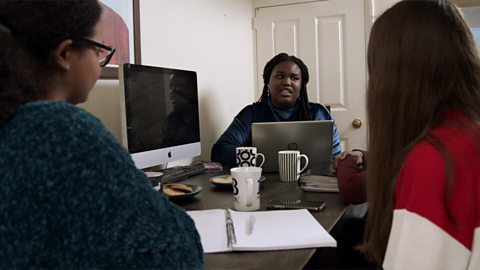Dr Hazel:
Welcome to the Brain Lab, IŌĆÖm Doctor Hazel, and this is where I'm going to be telling you some pretty cool stuff about the power of your brain.
Did you know that you can keep growing and strengthening your brain? Just like you can with your muscles when you exercise!
Just like we feed our bodies with five portions of fruit and veg per day, there are also five ways to keep our thoughts, feelings and behaviours healthy.
Think of it as a five a day for your brain! These are:Connect with other people, be active, take notice of the world around you, keep learning and give to others.
Today, iŌĆÖm going to be sharing some sciency facts about how we can keep learning.
When people start lifting weights in the gym, they donŌĆÖt start with the heaviest, they start with the light one and with practice and repeatedly lifting the weight, their muscles get stronger.
This is the same with our brains and learning new things in our brains, we have billions of tiny cells called neurons.
When we learn new things, these neurons connect and get stronger.
So the more we practice and learn, the more neurons we connect and the stronger our brains become.
Someone, who knows all about the power of his brain and pushing himself to learn new things, is Ethan.
Ethan has Cerebral Palsy, a medical condition that affects his movement and coordination.
Ethan:
My nameŌĆÖs Ethan and I'm an adaptive surfer. I first got into adaptive surfing because my mum found a taster day with Surfability.
And I had a surf lesson and they just helped me surf and IŌĆÖve surfed every week since.
I suffer with diplegic cerebral palsy, I donŌĆÖt really find that I find it difficult, I just find ways how to deal with it and just do it head on.
I donŌĆÖt want to be seen as different to another child, yes, I might have a difficulty but I like to do what my friends do.
And it just doesnŌĆÖt make a difference what I look like so IŌĆÖve always found a way how to be like my friends or do the exact same things as my friends.
IŌĆÖve always been like, in the water because I used to swim and I used to always go down the beach.
ItŌĆÖs just that adrenaline of catching that wave and as many people will say, surfing is very therapeutic, very relaxing.
And itŌĆÖs just trying to have fun basically.
So I'm training to go to the world adaptive championships in La Jolla, California.
IŌĆÖm doing a lot of water-time training and just finding new ways how to improve my surfing and what I can improve on, mistakes.
And just finding new ways how to be a better surfer.
I think itŌĆÖs important to keep learning and trying new things because itŌĆÖs always about improving what youŌĆÖre trying to do in life ora goal basically.
So say youŌĆÖre trying to complete a goal, in my case, becoming world champions, I can eventually find a way.
How I would complete that challenge and basically stick with it and learn from new mistakes and old mistakes and just improve from them.
IŌĆÖve never thought ever in my life that I can not be the same as another child, yes, I have difficulties but I never have the mindset ofŌĆśNo I canŌĆÖt do thisŌĆÖ ŌĆśno I canŌĆÖt do thatŌĆÖ - itŌĆÖs just finding a way how to do that specific thing that I want to do and finding a different way how to do it.
So I did a ramble for ŌĆśchildren in needŌĆÖ - a six and a half mile walk that took seven and a half hours.
I got through some tough terrains and tough muddy bits, there was times where I did want to give up.
Matt Baker showed me a video of my fellow surfing friends basically giving me motivation to keep this challenge and keep going.
I always had that mindset of completing it and I did eventually. I think itŌĆÖs very important for someone to have a growth mindset.
Because itŌĆÖs just that feeling that you can do anything you want to do if you put enough time and effort and dedication into it.
What you want to do and itŌĆÖs just finding that way how to. I always learn new things from either failures or just learning from like teachers.
Or my fellow sports people, failure is a part of life. I always find new ways how to accomplish things or find new ways how to learn.
If I need to learn anything to do with surfing or school, or anything else.
EthanŌĆÖs attitude to learning is brilliant, and he has the determination needed to overcome obstacles and barriers.
Sometimes it can be hard to find the confidence to try something new but taking small steps like Ethan, could lead to not only a whole world of fun, but also help you strengthen that brain!
So what are you waiting for? Keep learning and growing that brain!
Video summary
Clinical psychologist Dr Hazel Harrison and adaptive surfer, Ethan, explore why itŌĆÖs important to keep learning new things.
Ethan has cerebral palsy, a medical condition that affects his movement and coordination. He's also an adaptive surfer and is training to go to the world adaptive championships in California. In this short film Ethan shares his experiences of using a growth mindset to learn new things.
Throughout this series Dr Hazel introduces us to the five steps to wellbeing. In this film she explains what happens in our brains when we keep learning.
We learn about the positive effects that keeping learning can have on our wellbeing, and how having a growth mindset can help us to keep our knowledge, skills and our brain growing.
Teacher Notes
You can keep your brain growing by continuing to learn new skills.
This is called neuroplasticity.
The more you practise something, the stronger the connections in the brain become.
When you learn something new, it can also help to give your wellbeing a boost.
Mastering a new skill can help you to feel motivated and positive.
Before watching the film:
Watch the Teacher's guide with Dr Hazel Harrison and Natalie Costa for further support on wellbeing and growth mindset, as well as tips for using these resources.
This explains why the films were made and how they can be used, as well as offering guidance on growth mindset language and ways to integrate this into your daily teaching.
This film is produced with 7-12-year-olds in mind.
However, always make yourself familiar with the content and consider carefully whether it will be appropriate and of use for your class.
Once you are confident it is the right resource for your pupils, watch it through alone and consider how it would work best for you all.
Using the film:
This is one of five films about wellbeing and developing a growth mindset.
They can be shown in any order and are designed to encourage children to think about their own wellbeing, and how they can learn to build good habits to support their mental health and develop a positive attitude.
Classroom Ideas:
Pupils are learning every day at school in the classroom, but what other sorts of learning do they do?
Encourage pupils to have discussions about what they learn from their hobbies or the activities they do outside school.
Explore the idea of neuroplasticity with pupils and explain how the brain changes when they learn new things.
Encourage them to reflect on skills and abilities they have developed that were hard to begin with.
For example, how was it the first time they rode a bike or tried to write their name? What helped them to improve?
Ask pupils to write about the things they would like to learn to do but havenŌĆÖt mastered yet. What are the small steps they can take to keep working towards these goals?
How the film links to PSHE Curriculum:
The films cover the core theme of Health & Wellbeing for KS1 and KS2, delivering learning to pupils on the following points:
what keeping healthy means; different ways to keep healthy
strategies and behaviours that support mental health - including how good quality sleep, physical exercise/time outdoors, being involved in community groups, doing things for others, clubs, and activities, hobbies and spending time with family and friends can support mental health and wellbeing
how physical activity helps us to stay healthy; and ways to be physically active everyday
the different ways to rest and relax
the elements of a balanced, healthy lifestyle
choices that support a healthy lifestyle, and recognising what might influence these
how to recognise that habits can have both positive and negative effects on a healthy lifestyle
how regular (daily/weekly) exercise benefits mental and physical health (e.g. walking or cycling to school, daily active mile); recognising opportunities to be physically active and some of the risks associated with an inactive lifestyle
that mental health, just like physical health, is part of daily life; the importance of taking care of mental health
to recognise their individuality and personal qualities
how to manage when finding things difficult.
This short film will be relevant for teaching PSHE at KS2 in England, Wales and Northern Ireland and 2nd Level in Scotland.
Dan - Connect with others. video
Dr Hazel Harrison and a young magician called Dan find out why itŌĆÖs important to connect with other people. Dan has Asperger Syndrome, also known as Asperger's, and sometimes finds it difficult to connect with people. In this short film he shares his experiences of learning magic, using his growth mindset, and using magic tricks to help him connect with other people.
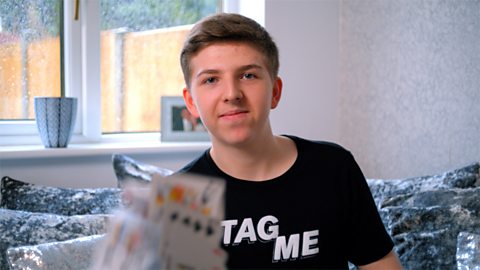
Kristana - Be active. video
Dr Hazel Harrison and a young weight-lifter called Kristana find out why itŌĆÖs good for us to keep active. In this short film Kristana explains how weightlifting has helped her to feel better about herself, develop confidence in school and overcome challenges.
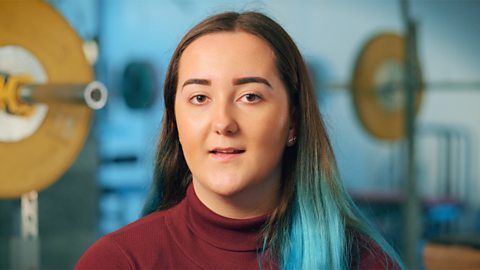
Mjd - Give to others. video
Dr Hazel Harrison and a student called Mjd explain why itŌĆÖs important for us to give to others. In this short film Mjd explains how he used a growth mindset to learn English, and how he 'gives to othersŌĆÖ by translating for his classmates and helping them learn.
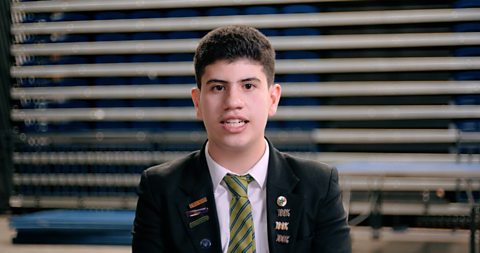
Rachel - Take notice. video
Dr Hazel Harrison and Rachel, a member of the Youth Parliament Committee, explore the concept of ŌĆśtaking noticeŌĆÖ. In this short film Rachel shares how she takes notice of the issues that are happening around her and how she tries to make a positive change.
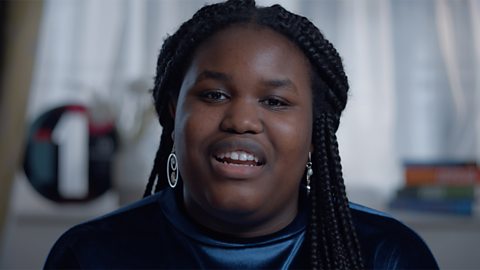
The Brain House. video
In this short film for primary schools Dr Hazel Harrison talks about what happens in our brains when we feel different emotions.
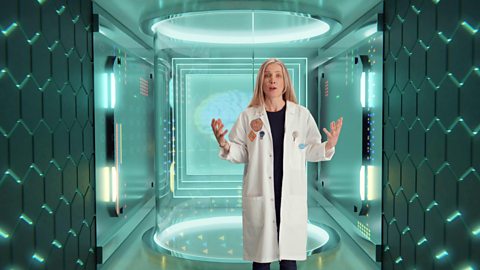
Introducing 'The Brain Lab' - A guide for teachers. video
An introduction to the resources for teachers with tips on how the films could be used in the classroom.
